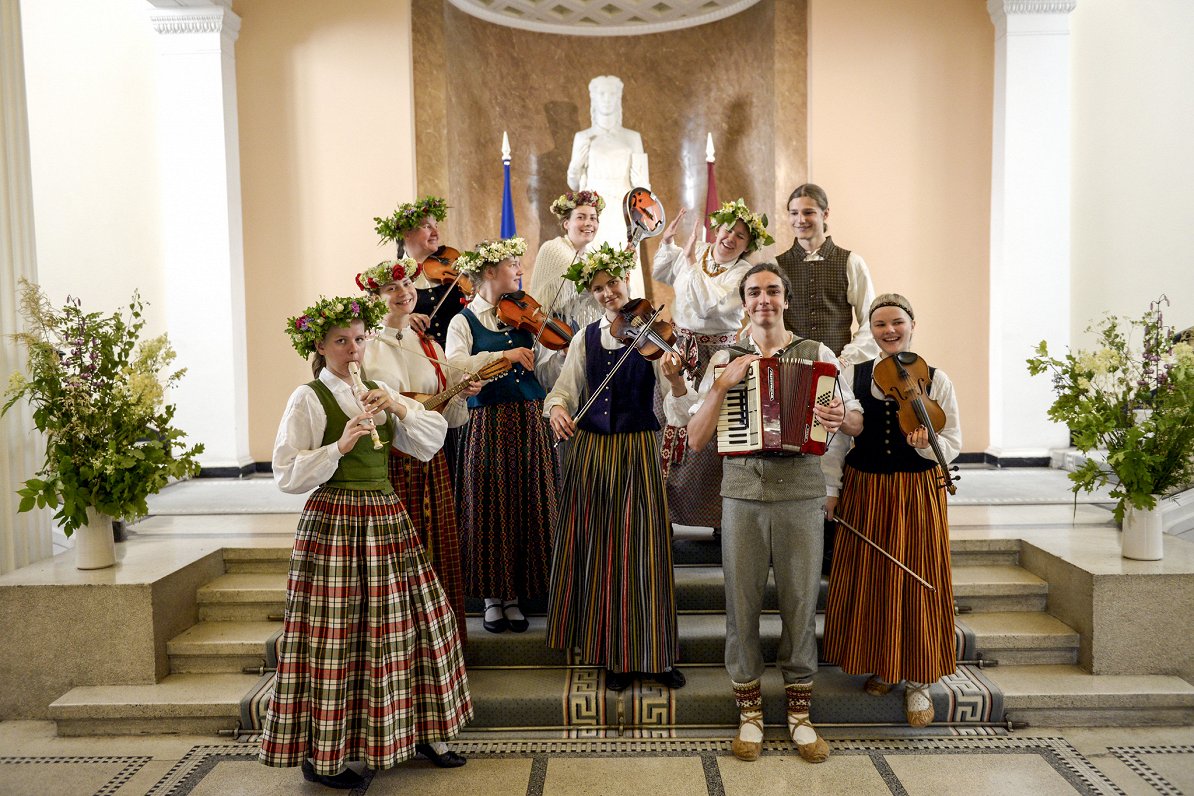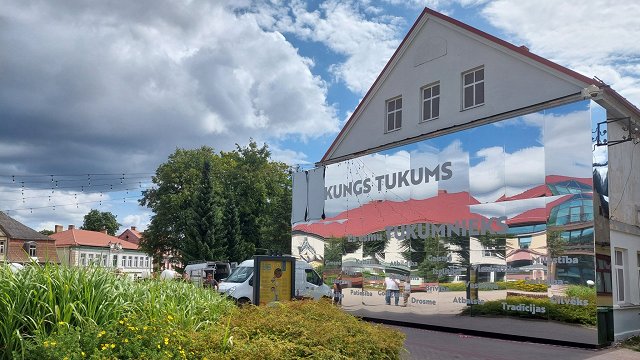The chief activities include drinking beer by the bonfire; grilling meat; eating the traditional Midsummer cheese (with lots of caraway seeds) and singing and dancing to seasonally-specific folk songs in the open air.
During these events, going to sleep is taboo (if you do doze off, you will "sleep all year"), as you are supposed to greet the sunrise in the morning.
Many city dwellers leave the capital for the countryside. That may be even more pronounced than usual this year with the coronavirus leading to the cancellation of the major celebrations that usually take place in Rīga. Many cars will be decorated with leaves, wreaths and other folkloric symbols -- but don't get too carried away as the police have their own traditional crackdown on drunk drivers for the duration of the holidays.
While it's understandable if foreigners don't know traditional Latvian songs, singing along to the Midsummer songs' common refrain Līgo, Līgo! will help you get into the mood.
You can make your own traditional wreaths of oak leaves (for men, especially those named Jānis and its variants such as 'John') and meadow flowers (for women, especially those named Līga). Folk costume or simple white shirts are preferred dress code.
Should you find yourself outside the capital and not really knowing what to do, hospitality is the order of the day so in a normal year you might even be invited to join someone else's Midsummer party. However, official COVID-19 advice right now is not to celebrate with strangers, so please don't take it personally.
Nevertheless a solitary Jāņi in the midst of Latvian nature has its own magic. It's a good idea to have mosquito repellent on hand if you intend to stay up all night, and if you find yourself in need of beer, it is sold pretty much everywhere, including at gas stations across Latvia.
It's possible someone close to you may invite you for a walk into the fields or forest in search of the highly prized and rarely-seen "fern flower". This is a real honor, but don't be surprised if you discover more than you bargained for. It will certainly help to keep you awake.
You can find out more about Latvia's Midsummer traditions in this nice piece from the Latvian Institute.
One of the more eye-catching aspects of the celebrations is jumping over a bonfire. Maybe you'll have the nerve to follow Latvians in this adventure (best wait until the flames have died down a bit) -- but safety should be your main concern; the same applies to intoxicated swimming and the aforementioned driving under the influence, which will both see you sink severely in the estimation of Midsummer purists.
On that very theme, there is a final important Midsummer tradition that isn't usually mentioned: arguing with family, friends and colleagues about the precise nature of a 'proper' Midsummer celebration. Whether it's the exact recipe for the cheese, the exact words to a song or the exact order in which things should be done, everyone has their own idea of perfection and an unshakeable belief that their own family has always done it the proper way with obscure grandmothers from Latgale usually regarded as possessing the necessary legal knowledge to hand down judgments.
Indeed this very week the LSM offices have been full of argument and counter-argument concerning the exact terms we are allowed to use when wishing people a happy Midsummer. One camp has it that the whole thing should be referred to only as the Jāņi festival (June 24), though in common usage -- including we note from various government ministers -- people often refer to Līgo festival (June 23) too. Various applications have been made to higher powers to decide the issue. No definitive decisions are expected until well after the Midsummer celebrations are over, and we're fairly sure no-one will take much notice of them by then anyway, so at risk of official censure at a future date, the LSM English language service wishes you:



























